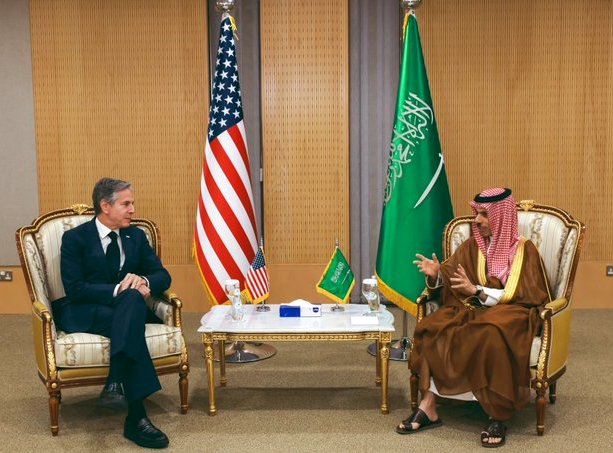Saudi Arabia and U.S. discuss joint efforts to end war in Sudan
July 14, 2023 (KHARTOUM) – The foreign ministers of Saudi Arabia and the United States issued separate statements, revealing discussions on their collaborative initiatives to end the war in Sudan.
The Jeddah process, launched by both countries, aimed to resolve the Sudanese conflict and resulted in the negotiation of a declaration of principle and three truce agreements. However, these efforts fell short of halting the ongoing fighting.
In parallel, the IGAD, supported by the African Union and the United Nations, established a quartet group to end the war and initiate a political process. But mediation progress has stalled due to the Sudanese military-led government’s rejection of the Kenyan chairmanship.
In a short tweet, U.S. Secretary of State Anthony Blinken stated, “I spoke today with Saudi Foreign Minister Faisal bin Farhan to discuss efforts to end the devastating conflict in Sudan and other bilateral and regional issues.”
According to the Saudi foreign ministry, Farhan and Blinken discussed joint efforts and developments on the regional and international stages during their conversation.
The discussion between the two diplomats followed a meeting among Sudan’s neighbouring states, which aimed to address the armed conflict.
Cairo, the initiator of this regional process, believes that neighbouring countries are most affected by the situation in Sudan and, therefore, hold a crucial stake in resolving it. Khartoum has welcomed the neighbouring countries’ initiative.
Amani Al Tawil, an influential Egyptian researcher specializing in Sudanese affairs, stated in a recent paper that the U.S. administration aims to prevent any Egyptian role in Sudan and has adopted a multifaceted approach towards the RSF.
According to Al-Tawil, the strategy of creating chaos in Sudan is intended to “grant political legitimacy to the RSF,” with direct involvement from Washington and support from regional proxies such as Ethiopia and Kenya.
Two days ago, Sudanese Islamist researcher Abdel Wahab Alafendi wrote an article suggesting that some perceive the RSF as “the only tool to confront the Islamists”, giving them a credit they do not deserve.
(ST)

